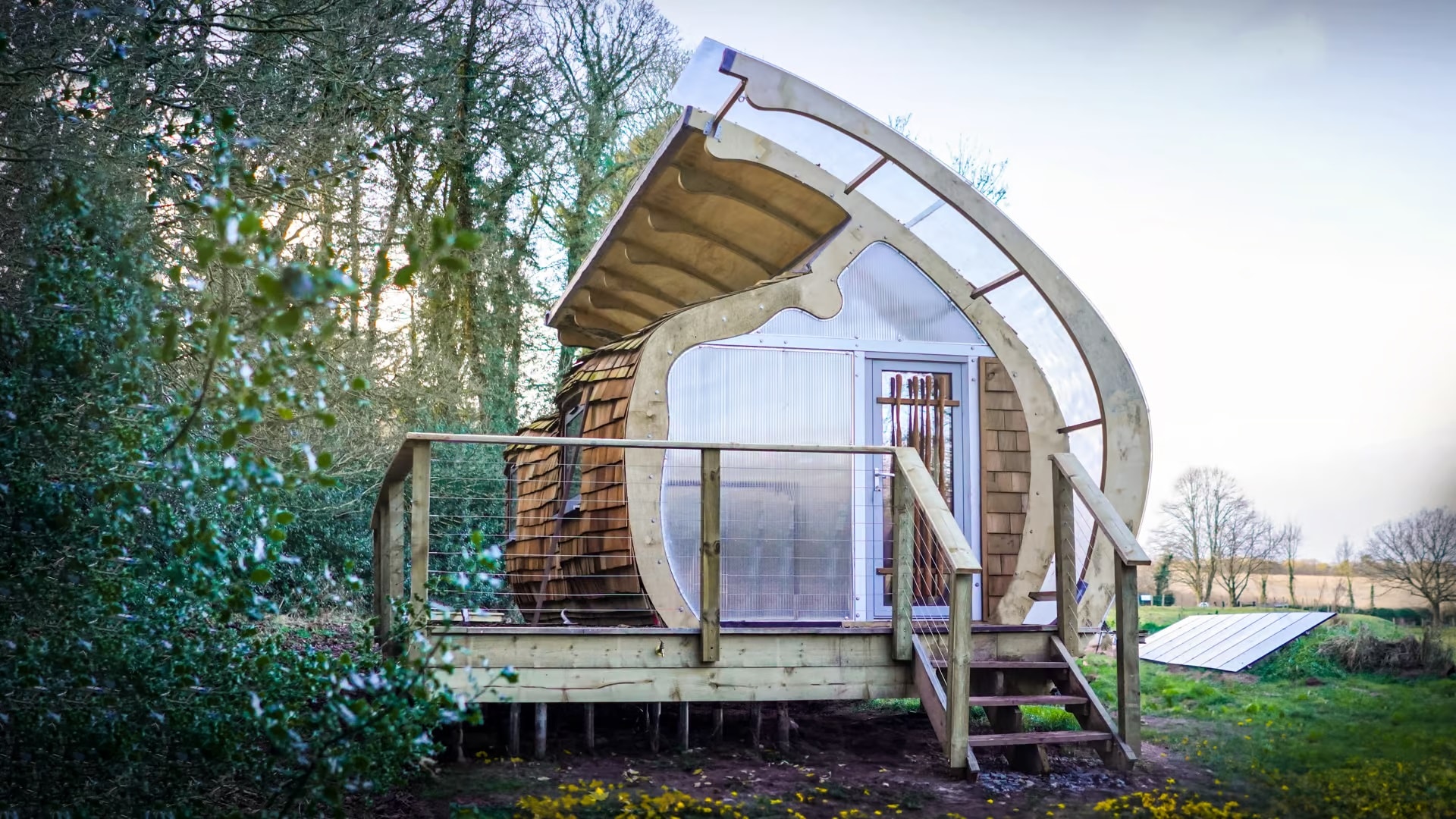In the vast and varied landscape of American housing, a quietly growing trend is offering a novel solution to the perennial problem of affordable living: long-term RV parks. These unique communities are not merely stopovers for travelers but are becoming a way of life for a diverse range of individuals and families. From seasonal workers and retirees to those bitten by the wanderlust bug, the appeal of living in a recreational vehicle for months or even years is gaining traction.
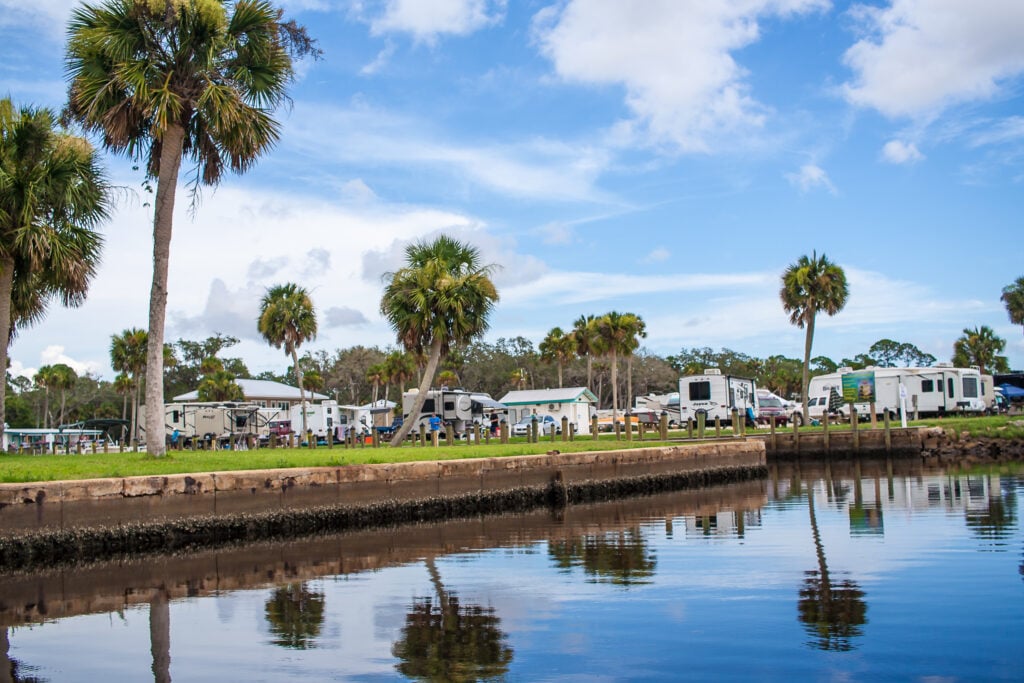
A Home on Wheels: The Rise of Extended-Stay RV Parks
Extended-stay RV parks, designed to accommodate residents for extended periods, are redefining the concept of home for many. These parks provide all the necessities of modern living—electricity, water, sewage hookups—and often much more, including Wi-Fi, laundry facilities, and communal spaces, all packaged within the adventurous spirit of RV living. This blend of convenience and mobility caters to anyone seeking an alternative to the skyrocketing costs and commitments of traditional housing.
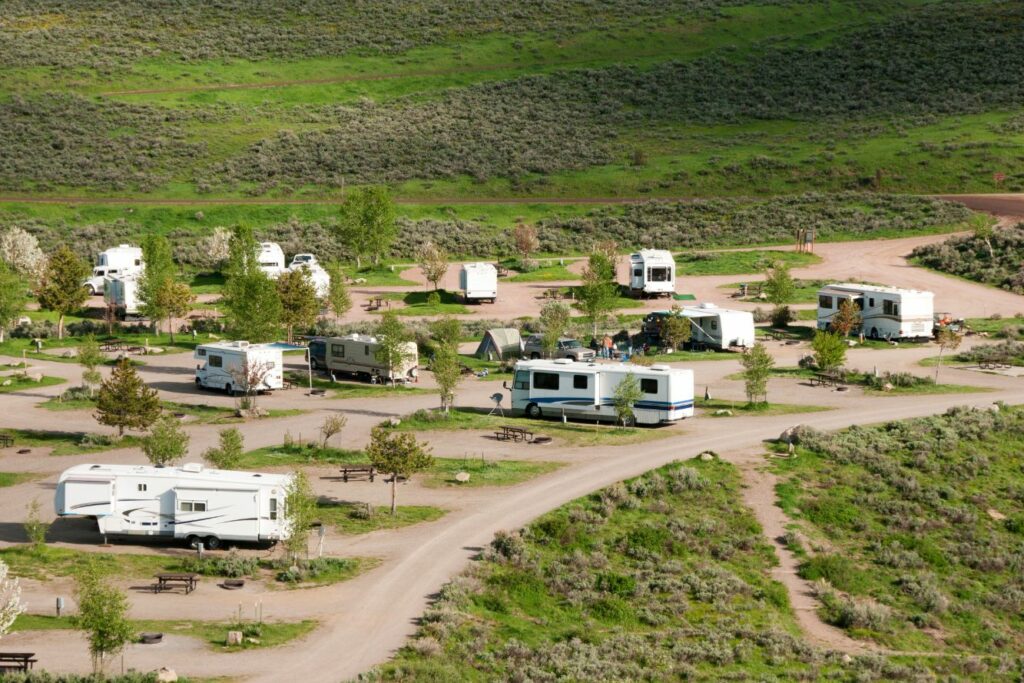
Generating Livelihoods: The Economics of Long-Term RV Parks
The financial model behind these parks is as intriguing as the lifestyle they support. Operators of long-term RV parks have found a lucrative niche in the housing market. By charging monthly rents, offering a variety of amenities, and even engaging in long-term lease agreements, these parks ensure a steady income stream. Seasonal pricing strategies further optimize occupancy rates, making the most of the ebb and flow of seasonal workers and tourists. Such a model not only sustains the parks but also contributes to local economies, creating jobs and fostering community growth.
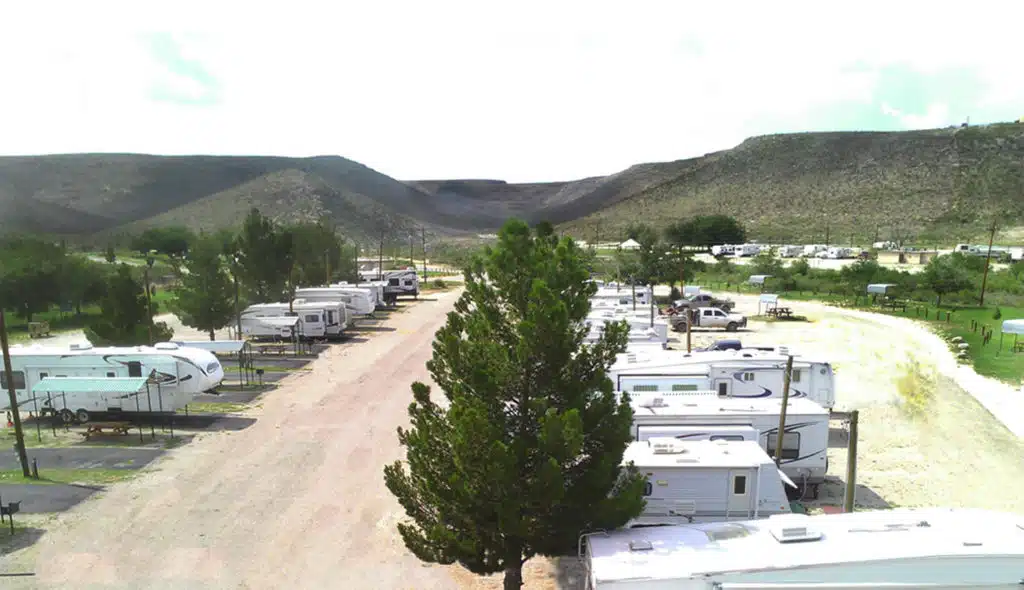
Sunbelt Havens: Where Long-Term RV Parks Flourish
The popularity of long-term RV living is not uniform across the United States but is concentrated in states blessed with temperate climates. Florida, Arizona, and California, with their year-round warmth, are hotspots for these communities. The allure of living in these sun-kissed locales without the hefty price tag of traditional real estate draws residents in droves. Additionally, areas adjacent to major tourist attractions or seasonal employment opportunities—be it near national parks or agricultural centers—also boast a significant number of long-term RV parks.
Addressing the Housing Crisis: A Viable Solution?
Amidst a backdrop of escalating housing prices and a growing scarcity of affordable options, long-term RV parks emerge as a beacon of hope for many. Offering lower costs of entry and reduced living expenses, these parks present a practical alternative for those edged out of conventional housing markets. While not a panacea for all, the potential of these parks to ease some of the strain on the affordable housing segment is undeniable.
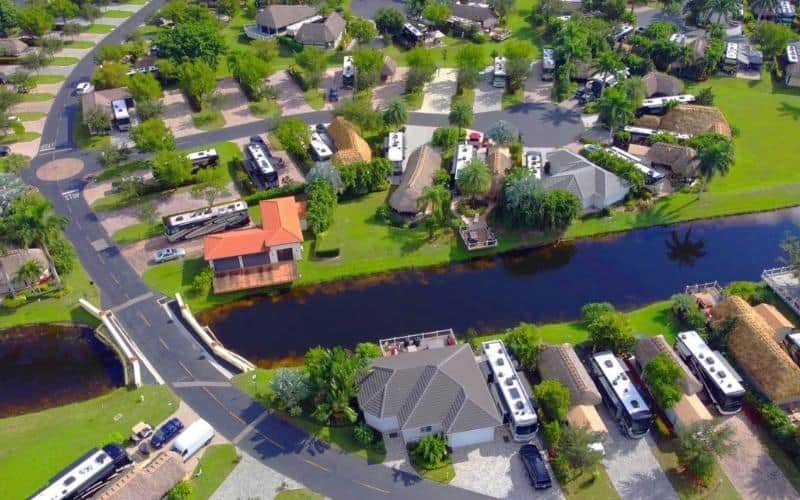
Weighing the Pros and Cons
The benefits of long-term RV park living are manifold. Affordability stands out, providing relief for those burdened by the costs of traditional housing. The flexibility to move without the hassle of selling a property, the sense of community, and the opportunity to reside in otherwise unaffordable locales are significant draws. However, the lifestyle is not without its drawbacks. Issues of space, privacy, vulnerability to severe weather, and the challenges of maintenance are inherent to RV living. Moreover, zoning laws and regulatory hurdles can complicate the transition to this mode of living.
Looking Ahead: The Road to Acceptance and Adaptation
The journey of long-term RV parks from niche to mainstream housing option is fraught with challenges and opportunities. As these communities grow, so too does the need for regulatory frameworks that recognize and accommodate this lifestyle. Addressing concerns related to infrastructure, zoning, and residents’ rights will be crucial in ensuring that long-term RV parks can fully realize their potential as a sustainable housing solution.
In conclusion, as we navigate the complexities of the modern housing market, the emergence of long-term RV parks highlights a broader quest for flexibility, affordability, and community. By reimagining the possibilities of what a home can be, these parks offer not just a place to live, but a new way to experience the world. The road ahead is promising, with the potential to not only address some of the pressing issues of housing affordability but also to enrich the lives of those who choose to call these parks home.
Gary Fleisher is a renowned blogger and commentator on construction and housing trends, known for his insightful analysis of the industry.

